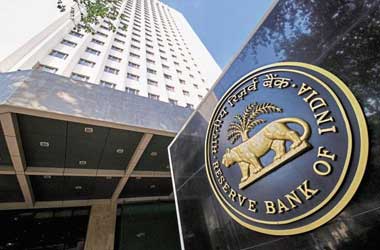 India’s central bank, the Reserve Bank of India (RBI) has issued its third cautionary warning against trading in crypto currencies such as Bitcoin, Litecoin, Dogecoins and Bbqcoins to name a few.
India’s central bank, the Reserve Bank of India (RBI) has issued its third cautionary warning against trading in crypto currencies such as Bitcoin, Litecoin, Dogecoins and Bbqcoins to name a few.
The value of one Bitcoin in December 2016 was below the $1,000 mark. Bitcoin which is the most popular cryptocurrency saw an exponential increase in value and crossed the $14,000 mark in December 2017. That is an incredible 1600 percent increase in value which has now caught the attention of millions of investors in India.
Investors in India have been rather slow to embrace the cryptocurrency boom for a number of reasons. The most obvious reason was because there was very little information available on cryptocurrencies and Indians in general were kept in the dark.
The second was due to the fact that India does not recognize or endorse cryptocurrencies such as Bitcoin and are not regulated by the RBI.
The Times of India
Prominent investors such as Warren Buffet have also helped dissuade Indians from investing in Bitcoin as he termed it as a bubble waiting to burst. However, with going from strength to strength in 2017, more Indians are beginning to learn and invest in cryptocurrencies as they believe that it could soon be licensed by the RBI and become a mainstream currency in the future.
The growing popularity of cryptocurrencies in India this year has forced the RBI to issue three cautionary warnings till date. Many Indians overseas are reported to be buying Bitcoins and then selling them in India to make a fantastic profit. As of now, it is not clear if the Foreign Exchange Management Act (FEMA) prevents Indians from doing this and since things are not in black and white, Indians are looking to take full advantage of the cryptocurrency boom.
The cautionary warning from RBI goes on to say
Payments by virtual currencies, such as Bitcoins, take place on a peer-to- peer basis without an authorised central agency which regulates such payments. As such, there is no established framework for recourse to customer problems / disputes / charge backs etc
RBI has also pointed out the high risks associated with investing in cryptocurrencies and storing them in e-wallets. The Reserve Bank warned that these e-wallets could easily be comprised by malware attacks, hackers and by users forgetting their e-wallet information which could potentially mean that they would have to say goodbye to their cryptocurrencies and have little to no recourse.

 United States
United States United Kingdom
United Kingdom















